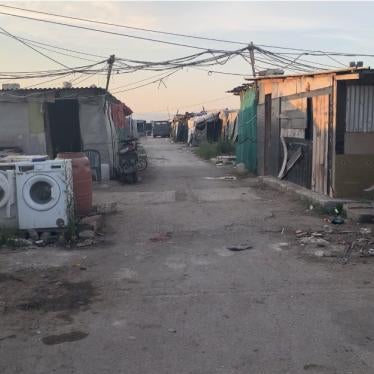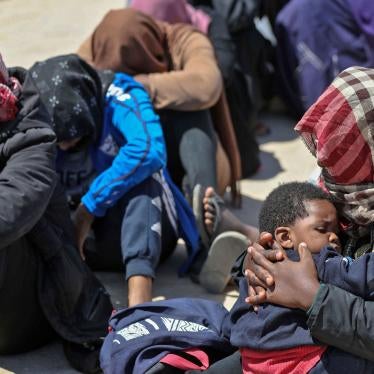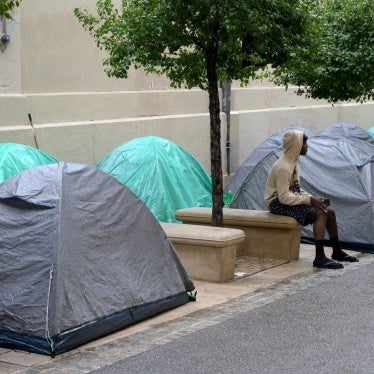Human Rights Watch today called on the governments of Pakistan and Tajikistan to reopen their borders to refugees from Afghanistan. The international monitoring organization also urged the international community to support relief operations for Afghan families who have been displaced by the current fighting in northern Afghanistan between the ruling Taliban and the opposition United Front.
The Afghan refugees face real threats to their life and liberty if they are turned away," said Sidney Jones, executive director of the Asia division of Human Rights Watch.
Pakistan's Interior Ministry announced on Thursday that it had ordered the closure of entry points along the country's western border with Afghanistan. Pakistan claimed an inability to absorb the approximately 30,000 refugees who have arrived during the past two months and the thousands more who were expected to seek refuge in the coming weeks. The government of Tajikistan similarly sealed its border in mid-September, shortly after the Taliban's capture of the northeastern town of Taloqan prompted the flight of at least 70,000 local residents.
Many of those displaced by the fighting in Afghanistan have reported that they feared the recurrence of abuses that had taken place during an earlier occupation of Taloqan by the Taliban, while others have stated that the recent offensive in the northeast had exposed them to grenade attacks and aerial bombardment. Human Rights Watch has gathered credible information about a range of abuses against civilians in other Taliban-held areas of northern Afghanistan from which refugees are now fleeing, including detentions of suspected United Front supporters, summary executions of prisoners, and forced conscription. These conditions have compounded the effects of a severe region-wide drought.
Border closures and denial of asylum to those fleeing persecution amount to a violation of the fundamental principle of non-refoulement - the obligation of states not to return any refugee to a country where their life or freedom may be threatened. Tajikistan is a party to the 1951 Convention Relating to the Status of Refugees, and the closure of its border with Afghanistan violates its obligations under the treaty. Although Pakistan is not a signatory to the Convention, it is still bound by obligations of non-refoulement under customary international law.
"Border closures are even more disturbing when the countries that deny entry to refugees play key roles in maintaining the armed conflict that is creating the refugee crisis," Jones said. Pakistan is widely believed to provide the Taliban critical strategic support, and Islamic seminaries and refugee camps inside Pakistan have been an important source of recruitment for the Taliban. Tajikistan provides the sole supply routes for United Front commander Ahmad Shah Massoud, and its territory has been used as a base by his forces.
Human Rights Watch also urged the international community to address the mounting humanitarian crisis in Afghanistan with increased support for relief operations in Afghanistan and Pakistan by humanitarian aid agencies. Pakistan is host to 1.2 million refugees - the second largest refugee population in the world. The vast majority of the refugees are Afghans, including many who have been resident in Pakistan since the Soviet invasion of Afghanistan in 1979. International assistance and attention for the Afghan refugee crisis has diminished over recent years and both Iran, which hosts the largest Afghan refugee population in the world, and Pakistan, have decried the chronic lack of international attention and funding.







